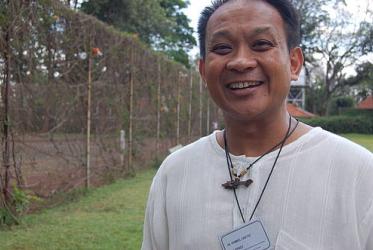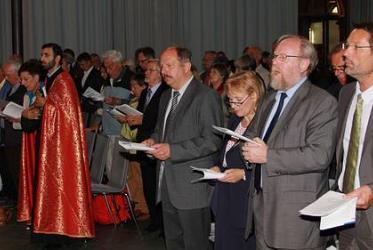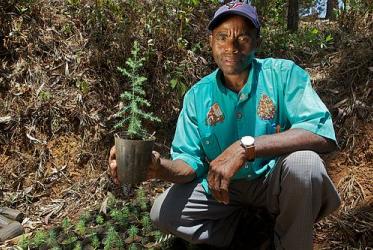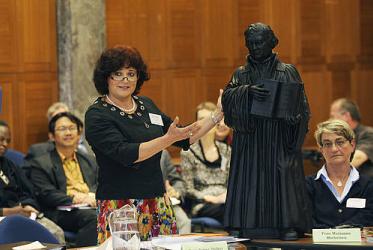Displaying 1061 - 1080 of 1294
27 October 2011
Water: a political issue needing political solution
27 October 2011
WCC supports Ecuador’s Yasuni project
13 October 2011
Raising ethical dimensions in debate on climate justice
22 September 2011
Mobilizing youth and women to reduce HIV
22 September 2011
Time for Creation 2011: A call to pray, reflect and act
14 September 2011
Time for Creation 2011: Trees and forests shall rejoice
31 August 2011
Christian youth to be trained for eco-justice
07 July 2011
WCC hails independence of South Sudan
07 July 2011
Kirchentag points to gospel values of "just peace"
01 June 2011
An environmental agenda for the churches
21 May 2011
Bartholomew I: “peace is a matter of choice”
10 May 2011
“We cannot be ecumenical by ourselves”
08 April 2011














